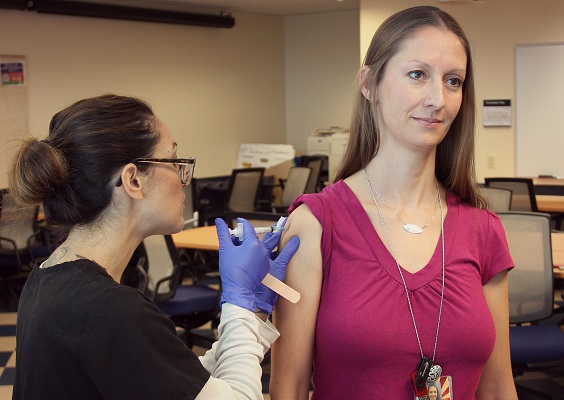 Proper immunization throughout the lifespan is one of the most important steps that individuals can take to protect their health, their children’s health, and the health of the community. Each year, a group of health and medical experts called the Advisory Committee on Immunization Practices creates recommended vaccination schedules for children and adolescents as well as adults. These recommendations are updated based on the latest research findings and are used by health care providers as a guide to determine appropriate vaccination.
Proper immunization throughout the lifespan is one of the most important steps that individuals can take to protect their health, their children’s health, and the health of the community. Each year, a group of health and medical experts called the Advisory Committee on Immunization Practices creates recommended vaccination schedules for children and adolescents as well as adults. These recommendations are updated based on the latest research findings and are used by health care providers as a guide to determine appropriate vaccination.
The 2017 recommended schedule was recently released and includes some formatting and design changes, as well as updates to the following vaccines:
- Influenza
- Human papillomavirus (HPV)
- Haemophilus influenza type b (Hib)
- Pneumococcal
- Hepatitis B (HepB)
- Diphtheria, pertussis, acellular pertussis (DTaP)
- Meningococcal
Most of the recommended vaccines in this schedule are given during infancy and childhood. Immunization is an important part of preventing disease in adulthood, both for your health, and the health of those around you, such as infants that aren’t fully vaccinated. Coverage data for adult immunizations in the year 2015 (the most recent data available) was collected through a nationwide telephone-based health data collection called the Behavioral Risk Factor Surveillance System (BRFSS). The information is available on the CDC’s website, AdultVaxView Interactive. Compared with 2014 data, increases in adult coverage were found for the Tdap, pneumococcal, and shingles vaccines.
Learn more about which vaccines you might need by taking the Adolescent and Adult Vaccine Quiz.









